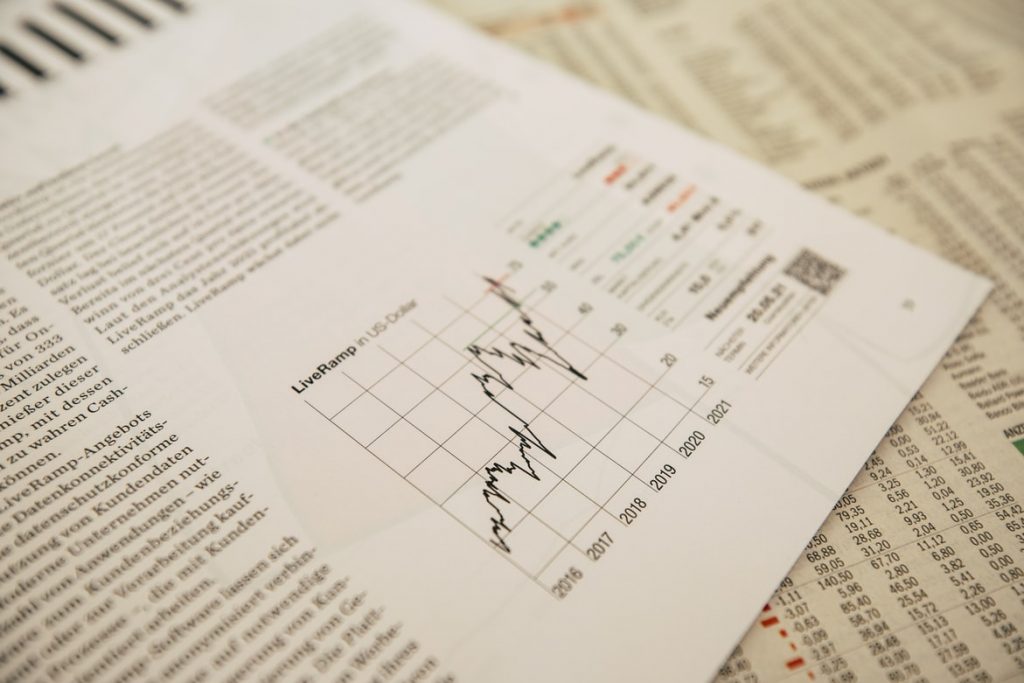Fractional stock trading has made shares more accessible to amateur, retail, and low-net worth investors. Effectively, by reducing the minimum position size for major company shares, traders can more easily get involved in equity speculation. This 2023 guide will explain what fractional stock trading is, how to get started, plus the best brokers.
Fractional Shares Explained
Firstly, what is the definition or meaning of fractional stocks and shares? Essentially, if a broker offers fractional ownership of shares, this means that it offers to sell portions or percentages of a share to its clients (e.g. 10%, 20%, 50%). It is designed to allow investors with less capital the opportunity to invest in stocks with high values.
There are many stocks, particularly some of the big US tech sector stocks, for which single shares can cost thousands of dollars. For many retail investors, this is either outside their price range or would take up too significant a portion of their investment budget.
Fractional stock trading can drastically reduce the cost of an investment, allowing for better diversification of a trader’s portfolio. For example, Interactive Brokers allows traders to invest just $1 in fractional shares of stocks.
And importantly, traders make the same percentage gains as those with full shares.
Fractional stock trading is something that has provided a good alternative to penny stocks, for example. It also tends to be more focused on US stocks rather than those in Europe. Expensive cryptos may also be bought in fractions (e.g fractional shares of Bitcoin) using platforms like Coinbase. The same can apply to NFTs (non-fungible tokens).

How Does Fractional Stock Trading Work
Firstly, fractional shares do not trade on the open market. Therefore, those that want to get started will need to find a broker that supports them. These platforms will combine your fractional positions with others from different clients to buy or sell whole shares. This process can take some time, so executions may be a little slower than with regular stock trading.
Fortunately, fractional stock trading does not forgo your entitlement to dividends. Many brokers still support dividend payments for fractional shares, at a rate proportional to your position. However, you should always double-check that this is the case.
Some online platforms will also allow you to short fractional shares, giving you the freedom to speculate on market movements in both directions.
If a company that you hold fractional shares in decides to do a stock split, you will receive a new number of shares based on the relevant ratio.
How To Start Trading Fractional Shares
In 2019, Interactive Brokers became the first major online brokerage to offer fractional stock trading.
Other trading apps have also followed suit, but some more traditional brokers have not. T.Rowe Price, for example, provides a great selection of funds that allow investors to diversify their portfolios with expensive stocks via mutual funds and ETFs.
Other brokers such as XTB, eToro, and Plus500 offer leveraged stock CFDs as another means of providing traders with less capital access to more expensive stocks.
Choosing A Broker
The first step in investing in fractional shares is to open an account with a broker who provides them. We have compiled a comprehensive ranked list of recommended companies here. Additionally, Binance announced in 2021 that users can purchase fractional shares using crypto tokens.
When comparing brokers to find the best fractional stock trading platform in the UK or elsewhere, there are several factors to consider. Most importantly, check each company’s commissions, trading platforms, research and analysis materials, customer support, and regulatory status. Additionally, make sure to review the broker’s policies on dividend payouts and voting rights.
Buying Fractional Shares
Some companies allow you to select the amount of capital you want to invest in a particular stock, which calculates the number of shares and fractional shares required. This simplifies life and gives you more control over your investment plan.
Of course, do not forget to do the necessary research and technical or fundamental analysis on the stock or fund you are investing in.
Traders can also acquire fractional shares if a private company is going through a merger and a new stock ratio is applied.
A dividend reinvestment plan (DRIP) is a scheme that allows dividends to be used to invest in additional shares, some of which may be fractional.
However, the primary way in which you would acquire fractional shares is through a broker that offers them directly.
For more information, you can check out the fractional stocks and shares discussion threads on Reddit, which include conversations on whether fractional shares are worth it.
YouTube also has additional general information on fractional stock trading, including its meaning and some key benefits.
Fractional Stock Trading Strategies
The best fractional stocks to buy depends on which strategy you are following.
Position Trading
If you are fractional stock trading solely due to a fund limitation, you may find longer-term strategies like position trading to be useful.
This approach entails focusing on fundamental and technical analysis over long-term predictions and patterns and holding positions over several months or years.
Fractional stock trading lends itself better to long-term approaches like position trading due to the delay in order executions.
This delay from order grouping can also produce slippage.
For day and swing traders, this can cause serious problems, with positions entered and exited at the wrong times and unfavourable prices. However, position traders operate over such large timeframes and price movements that the slippage and delay have a much lesser impact on the results of each position.
Dollar-Cost Averaging
A dollar-cost averaging strategy is made much easier through fractional shares for investors with less capital. The system involves investing regular amounts of your total capital at set intervals, regardless of the market price. This hopes to remove some of the risks involved with staking all your capital at once. For example, a sudden, total price collapse would not take all your capital with it and short-term volatility will be levelled out.

Pros Of Fractional Stock Trading
- Easier to diversify portfolios
- Makes expensive stocks accessible
- Provides greater portfolio and strategy refinement
Cons Of Fractional Stock Trading
- Can incur fees
- Order grouping can cause delays
- Some market order types may not be available
- Brokers may apply limits on which assets are supported
Fractional Stock Trading Tips
Build A Strategy Around You
A key benefit of fractional stock trading is that you can dictate the diversification of your portfolio, rather than the price of company shares.
So, think carefully about the level of risk you wish to expose yourself to and how much capital you can afford to lose in each stock.
For example, you may want 5% in Amazon, 10% in Berkshire Hathaway (BRK.A), 5% in Tesla, 10% in GameStop (GME), 10% in a fund like Vanguard 500 Index Fund ETF (VOO) or Vanguard Total Stock Market Index Fund ETF (VTI), 5% in Google and the rest in cheaper stocks. You can even find online fractional shares calculators to work out the exact investment for each.
Do Not Limit Yourself To Single Stocks
Investing in fractional shares of an ETF can help further diversify your portfolio. Splitting your capital across several stocks, funds and ETFs will allow you to achieve a much greater level of diversification. This can be particularly useful for those looking to minimise volatility risks. Check which ETFs you can invest fractionally in with your broker.
Final Word On Fractional Stock Trading
Fractional shares are a useful way to gain access to expensive stocks and funds for those that cannot afford a full share. Brokers that offer fractional stock trading group orders to purchase or sell full shares on the equity markets. The system also has the benefit of allowing for greater portfolio diversification. However, there can be some delays in order executions and products are not yet widespread amongst online brokers. Moreover, even firms and cash apps that do offer fractional stock trading may still limit it to particular companies and funds.
FAQ
What Is Fractional Stock Trading?
Fractional stock trading involves purchasing portions of shares, rather than a full share.
This can be to provide greater portfolio diversification or to make expensive shares accessible to low-net-worth investors.
What Fractional Stocks Should I Buy?
This depends on your strategy, your budget and the price of the stock or index fund you are looking at. If you are interested in a particular company but its share price exceeds your budget, it may be worth placing a stake in the firm.
Are Fractional Stocks & Shares A Good Or Bad Idea?
Fractional stock trading gives individuals more options in terms of investment opportunities, strategies and portfolio diversification. However, you should keep an eye out for any additional fees.
Are Fractional Shares Safe?
Fractional shares are generally as safe as a whole share in a particular company.
Always check the broker’s rules concerning dividend payouts, fees and voting rights though.
Are Fractional Shares Legal?
Although some regulators (for example, in India) do not allow fractional stock trading, it is accepted and legal across large parts of the world. UK-based investors can invest in fractional stocks, for example.
Can You Buy Fractional Stocks & Shares With eTrade, TD Ameritrade, Robinhood, Webull & Fidelity?
eTrade and TD Ameritrade do not support the direct purchase of fractional shares. However, Robinhood, Webull and Fidelity do.
